Winter brings many challenges for the backyard chicken-keeper, and frozen water is chief among them. You can make your own waterer heater for use with either metal or plastic waterers. It will cost less than $10, cost pennies to run and you can complete the project in under ten minutes!
We had record-breaking, sub-zero temperatures for long periods of time in 2010 here in Connectictut and my waterers never iced over the way they used to without these heaters. It doesn’t seem as though a humble, 40 watt lightbulb should be able to produce enough warmth to keep the water in a plastic waterer from icing over, but remarkably, it does!
Supplies:
-
10″, metal cookie tin (available at most dollar & thrift stores & likely in your garage or basement)
-
lamp assembly kit (available oniline, at hardware & home improvement stores OR buy a thrift store/tag sale lamp and take it apart)0
- 40 watt, incandescent light bulb (in deep-freeze conditions, use a 60 watt bulb)(in light of the government phase-out, some users recommend 40 watt candelabra bulbs or CFL bulbs, but I have not, so I cannot vouch for their effectiveness)
- Drill with 3/8″ drill bit
INSTRUCTIONS:
1. Drill a hole in the side of the cookie tin.
2. String the pre-threaded lamp stem assembly through the hole & tighten the screw on the stem.
3. Screw in the light bulb. Voila!
TO USE:
Put the top on the cookie tin and place the tin on a cinder block or another level surface in the chicken run. Plug into a GFI outlet. Place metal or plastic waterer on top of the water heater when freezing temperatures are anticipated. Disconnect when not in use or use a ThermoCube to turn the unit on when temperatures reache 35°F.
When I made my first cookie tin water heater, I found it difficult to believe that this device, which barely felt warm to the touch, could possibly do the intended job. I was only convinced the first frigid morning I went out into the run and found no ice ring to chip out of the waterer. You may have to try it to believe it too.
Kathy Shea Mormino
Affectionately known internationally as The Chicken Chick®, Kathy Shea Mormino shares a fun-loving, informative style to raising backyard chickens. …Read on


shop my SPONSORS
Winter brings many challenges for the backyard chicken-keeper, and frozen water is chief among them. You can make your own waterer heater for use with either metal or plastic waterers. It will cost less than $10, cost pennies to run and you can complete the project in under ten minutes!
We had record-breaking, sub-zero temperatures for long periods of time in 2010 here in Connectictut and my waterers never iced over the way they used to without these heaters. It doesn’t seem as though a humble, 40 watt lightbulb should be able to produce enough warmth to keep the water in a plastic waterer from icing over, but remarkably, it does!
Supplies:
-
10″, metal cookie tin (available at most dollar & thrift stores & likely in your garage or basement)
-
lamp assembly kit (available oniline, at hardware & home improvement stores OR buy a thrift store/tag sale lamp and take it apart)0
- 40 watt, incandescent light bulb (in deep-freeze conditions, use a 60 watt bulb)(in light of the government phase-out, some users recommend 40 watt candelabra bulbs or CFL bulbs, but I have not, so I cannot vouch for their effectiveness)
- Drill with 3/8″ drill bit
INSTRUCTIONS:
1. Drill a hole in the side of the cookie tin.
2. String the pre-threaded lamp stem assembly through the hole & tighten the screw on the stem.
3. Screw in the light bulb. Voila!
TO USE:
Put the top on the cookie tin and place the tin on a cinder block or another level surface in the chicken run. Plug into a GFI outlet. Place metal or plastic waterer on top of the water heater when freezing temperatures are anticipated. Disconnect when not in use or use a ThermoCube to turn the unit on when temperatures reache 35°F.
When I made my first cookie tin water heater, I found it difficult to believe that this device, which barely felt warm to the touch, could possibly do the intended job. I was only convinced the first frigid morning I went out into the run and found no ice ring to chip out of the waterer. You may have to try it to believe it too.



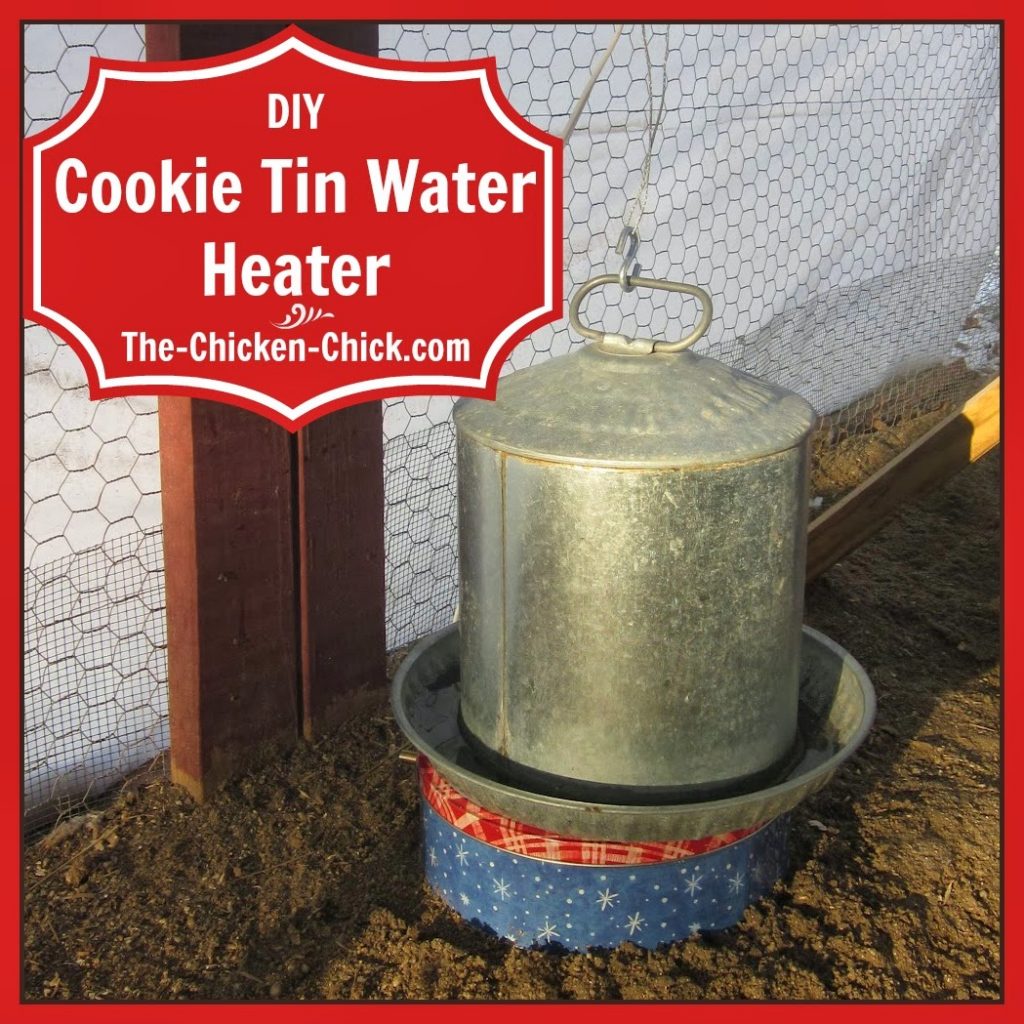
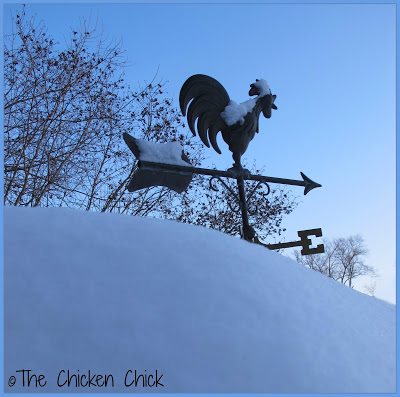
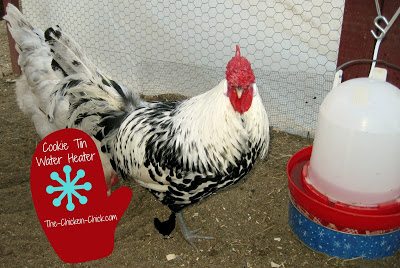
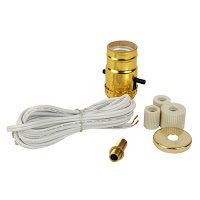
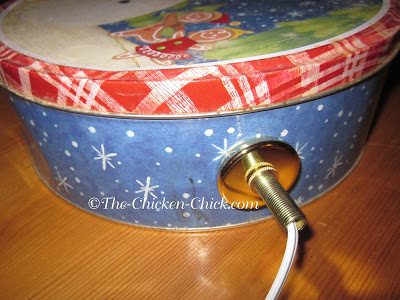
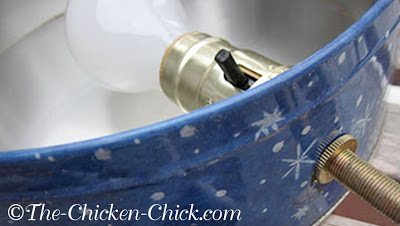
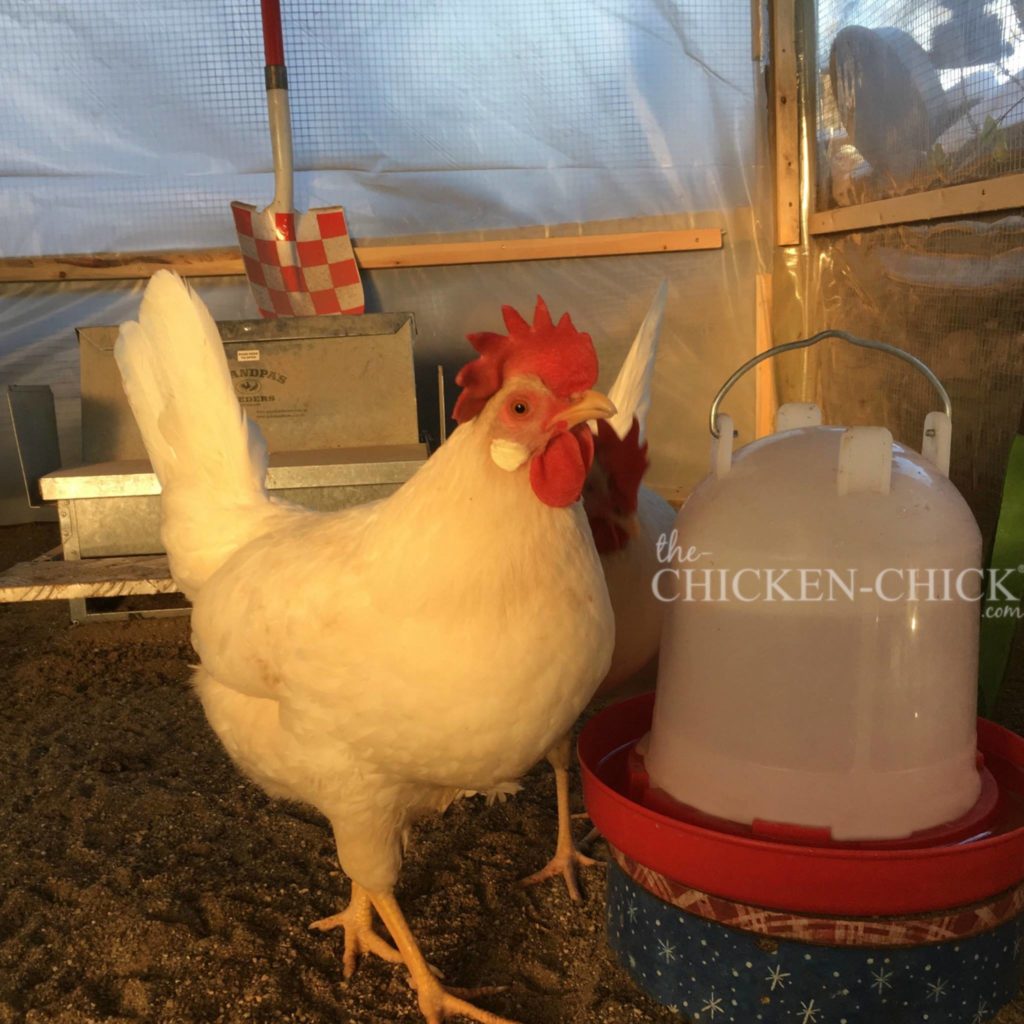
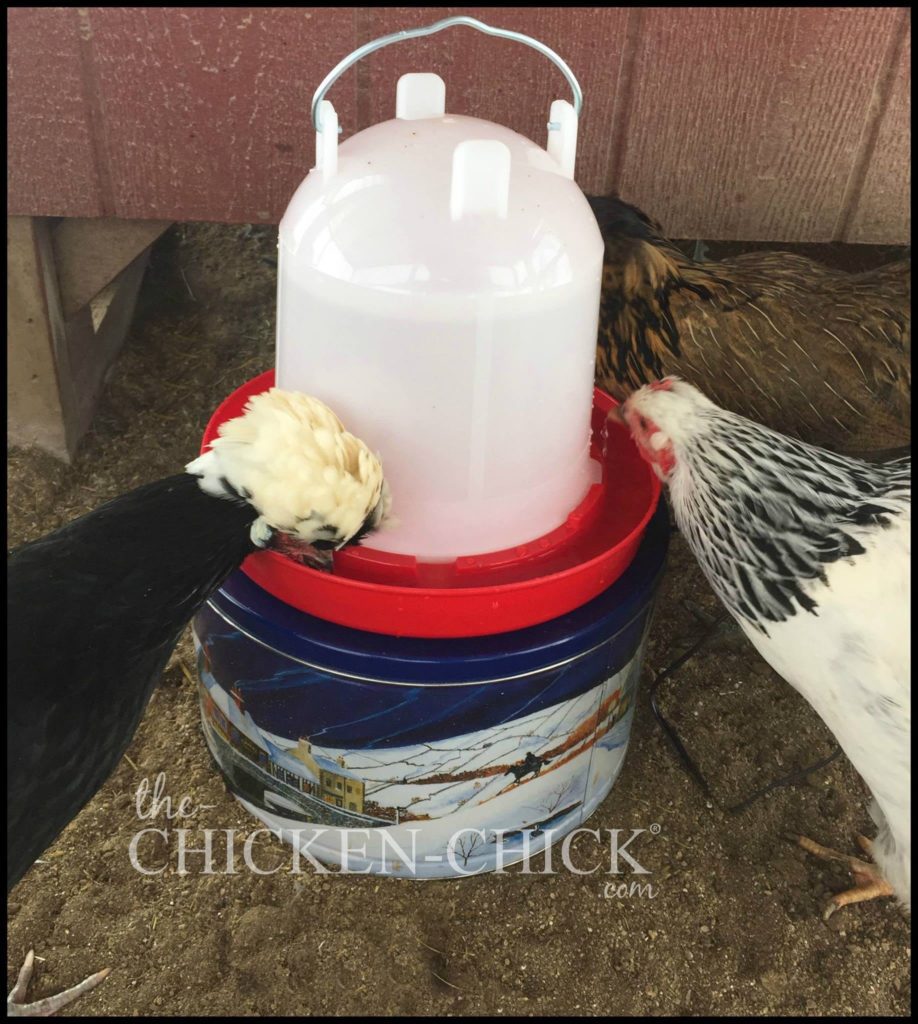
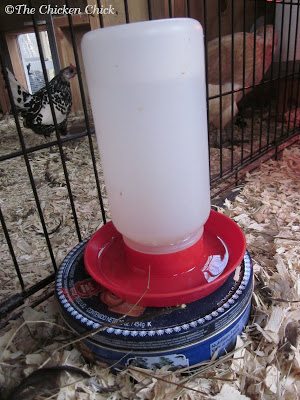
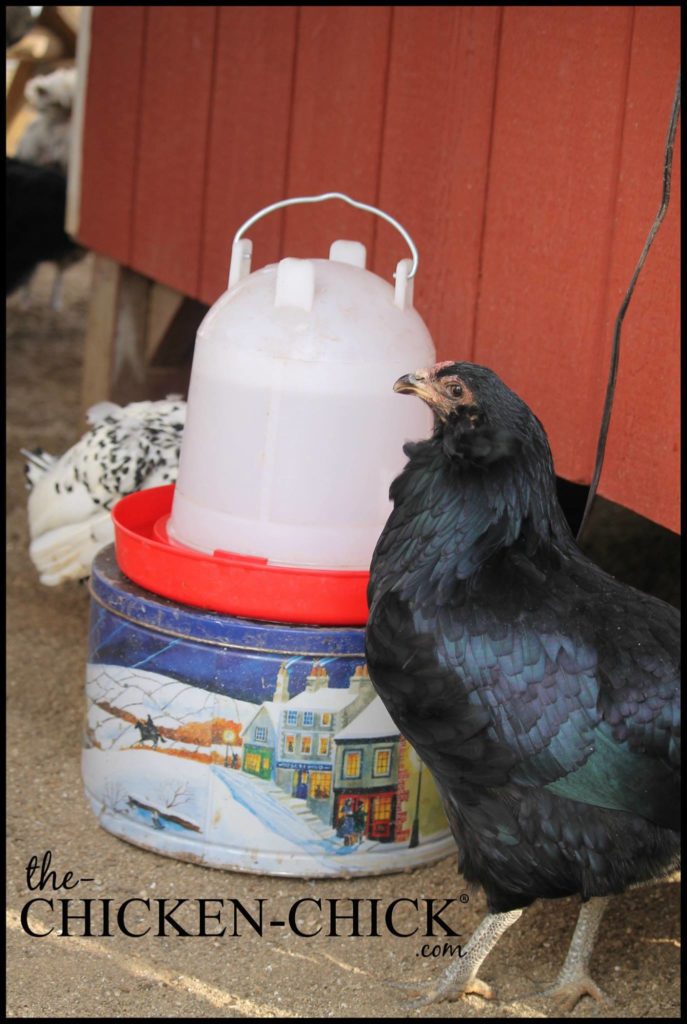






















My husband made one of these and used a hot water thermostat wired into the cord in side the cookie tin. This way when the temperature inside the cookie tin reached a certain temperature (around 95*) the light bulb would shut off till it cooled down inside the cookie tin and then the bulb would turn back on to heat up when it cooled down below a certain temp.
Handy hubby! He's a keeper. :)
Does anyone have a recorded lowest temperature that this lamp box works? We get -31 F for sometimes 2 weeks at our lowest.
Nicole, this is not going to work outside for -31° F temps. It will work to keep the water thawed in sub zero temps but not that low for that long. If you're able to keep water in the coop and use it inside the coop, that would work though. That's what I do in one of my coops.
Try it and let us know how your experiment with low temps pans out!
This was just a great idea that I showed my hubby and he made one for our birds!
Thank you.
That's so nice to know, Julie! Thanks for sharing. :)
Love the idea..
we bought a heated dog bowl.. gets a bit dirty with the girls flying down from the roost & all.
But after YEARS of dealing with frozen water bowls, it's worth cleaning once a week..
Thanks. :) Frozen water is a drag, isn't it?
Love! Only wish I'd seen it sooner, as DH instead built a pvc waterer with those nipples nipples and wrapped it with heat tape and insulated it… and $100 later, the water still freezes!!!
Ouch! Well, glad you found this eventually, at least this little number will work the way you hope it will. :)